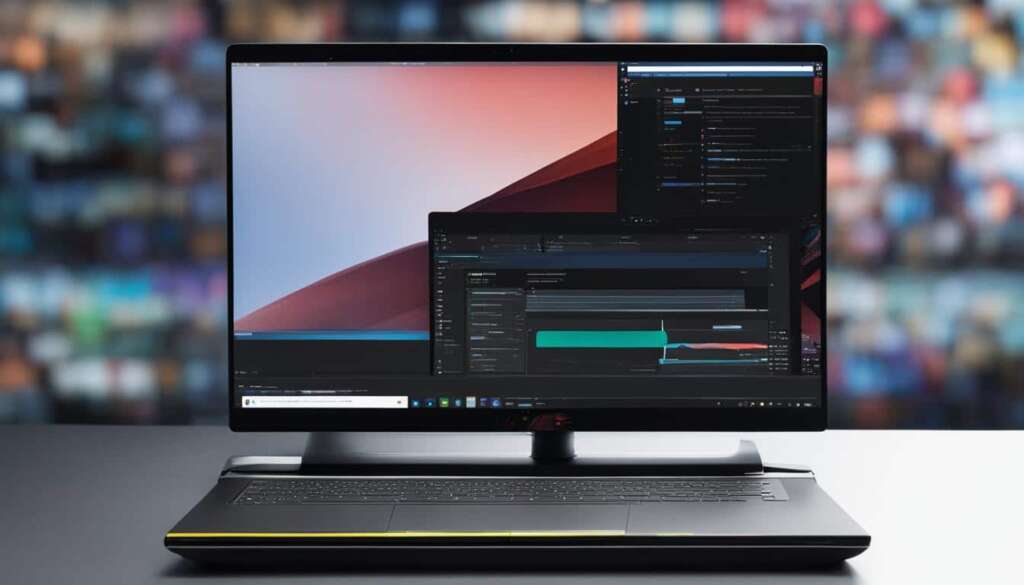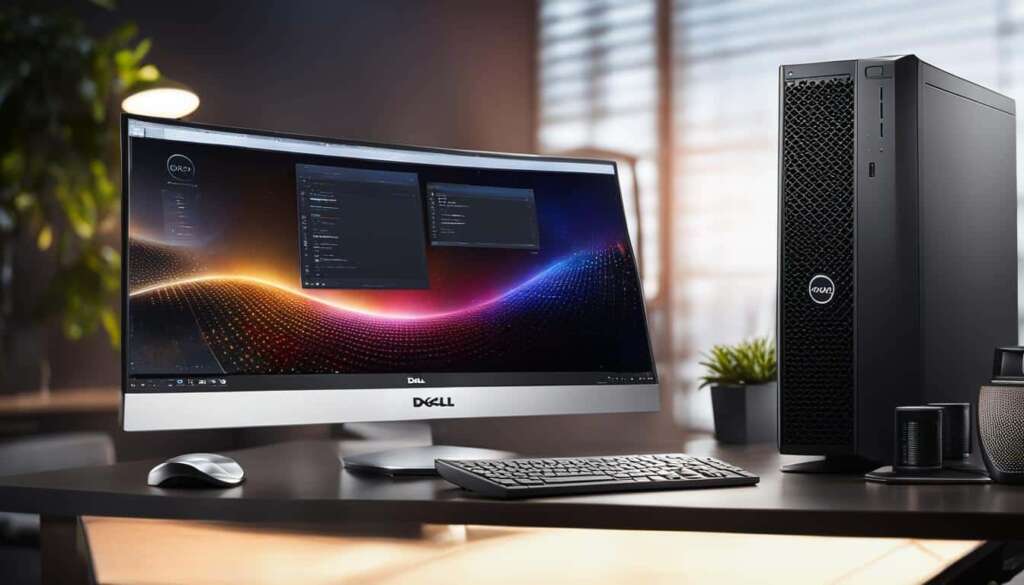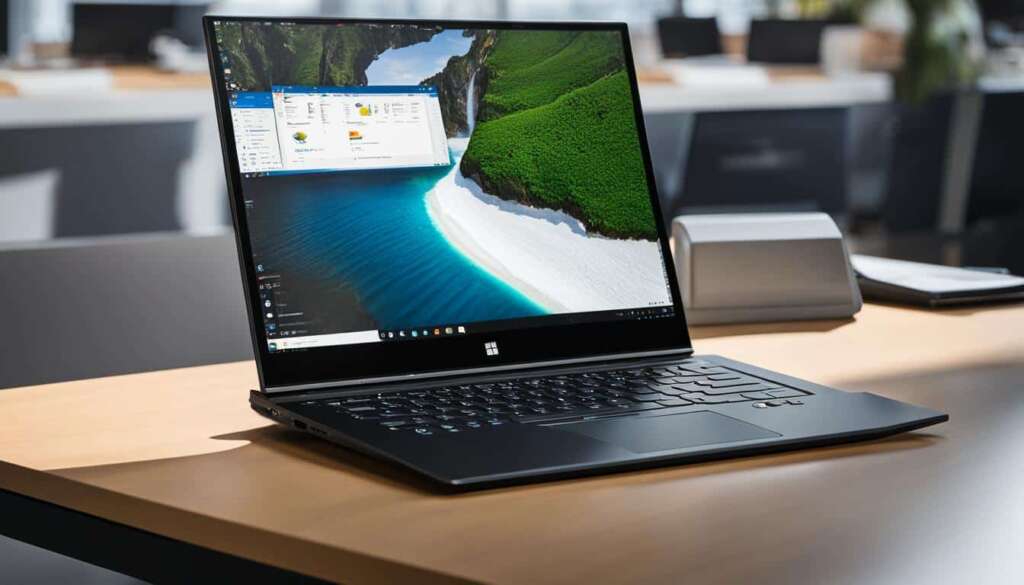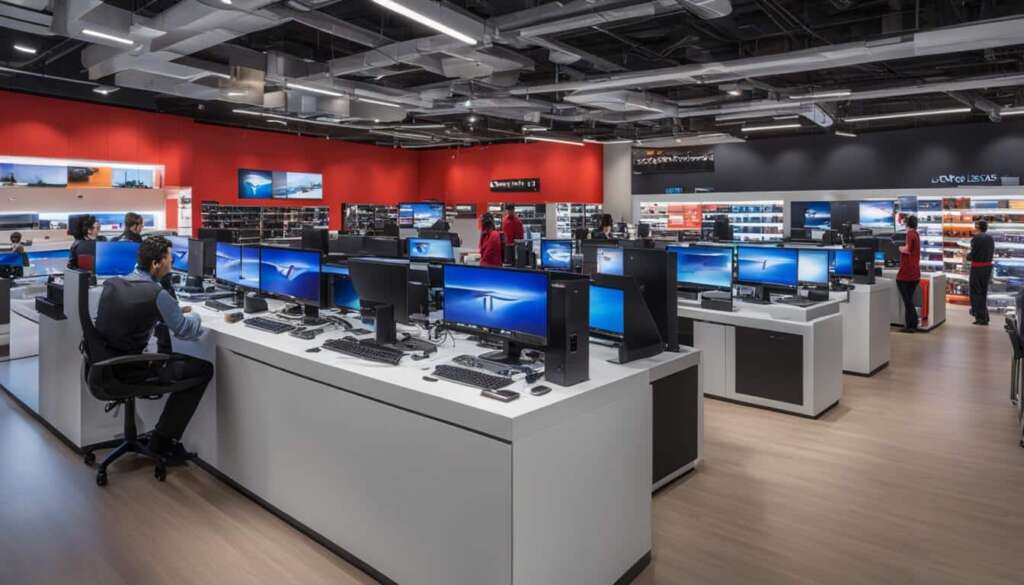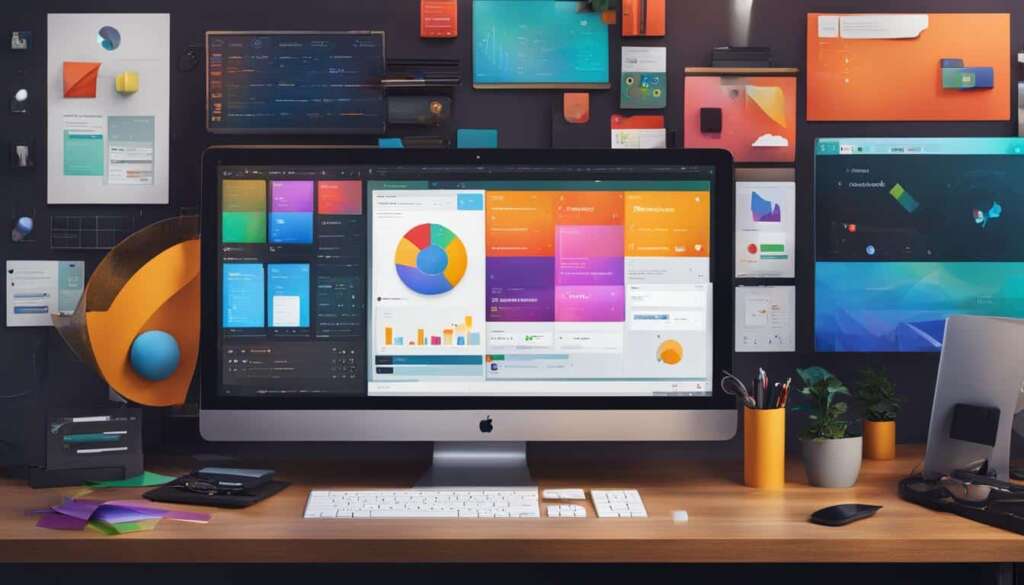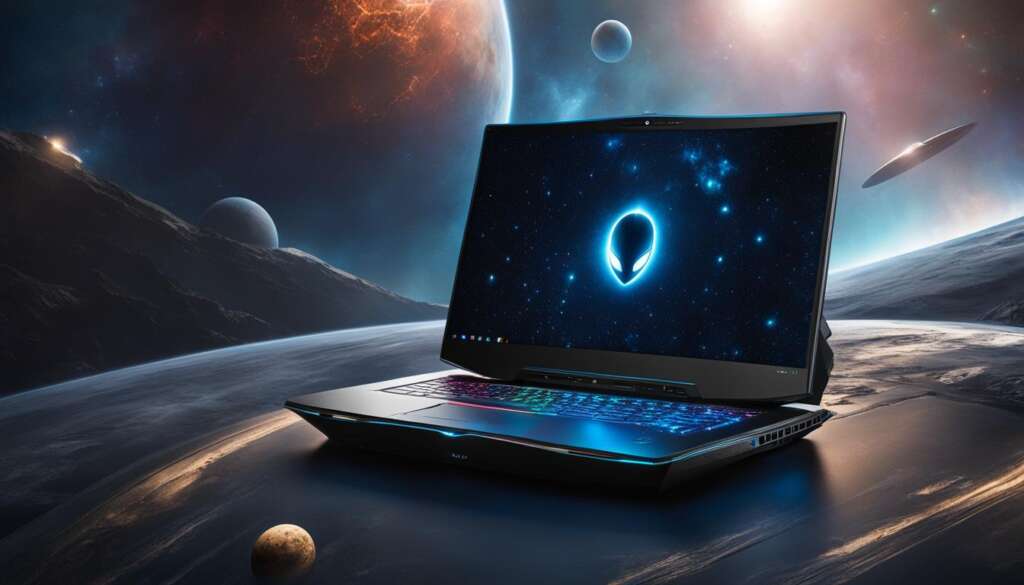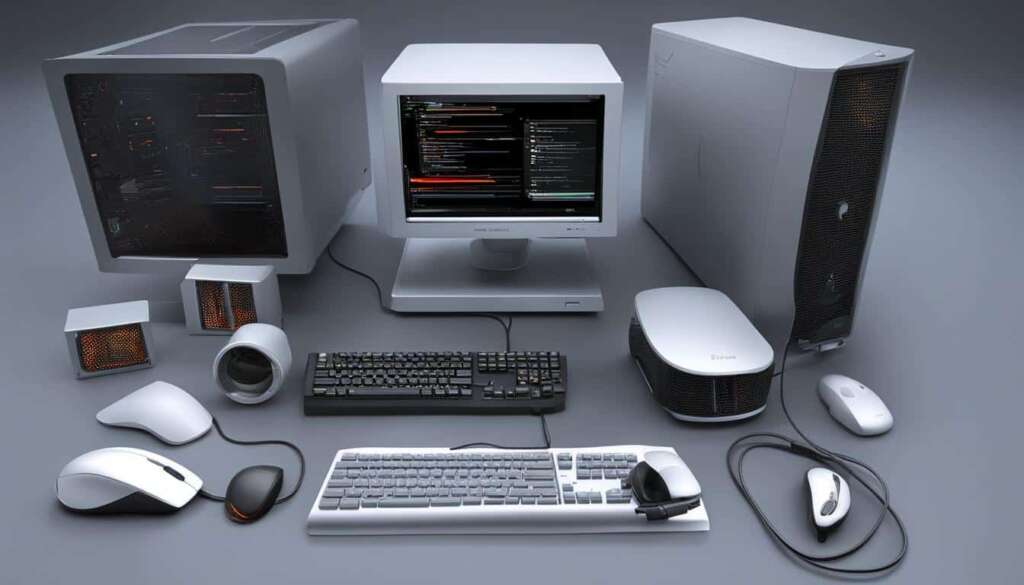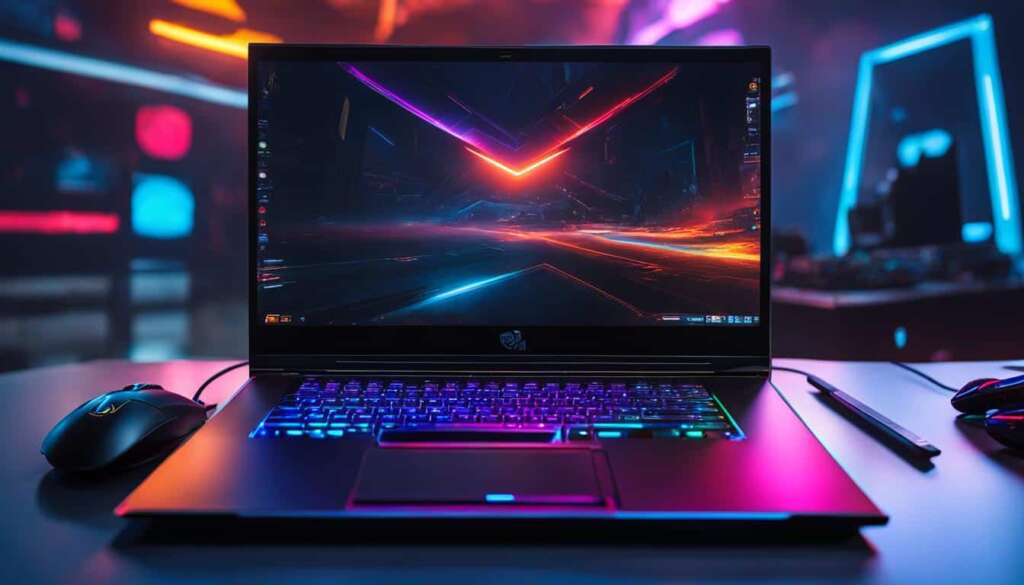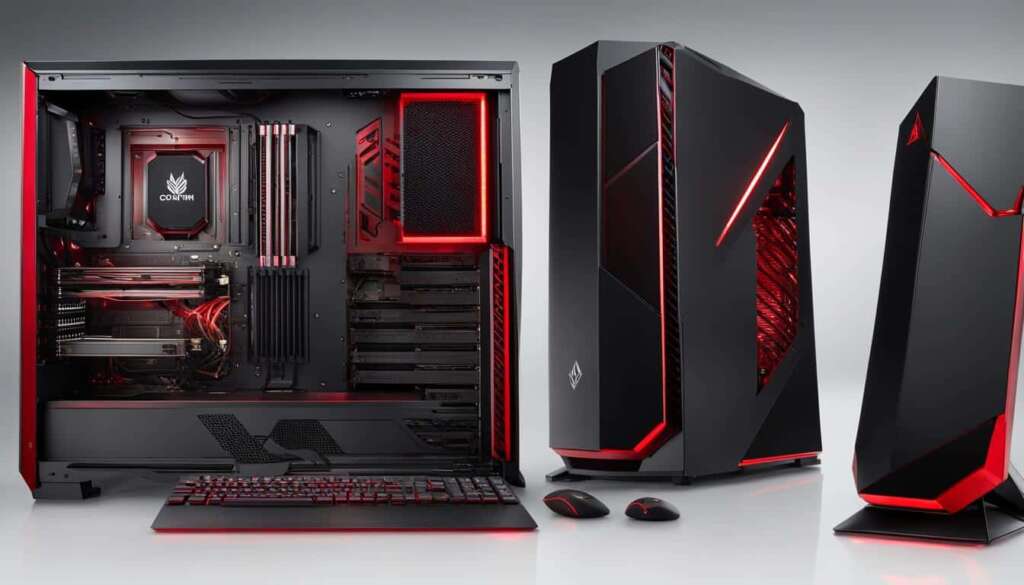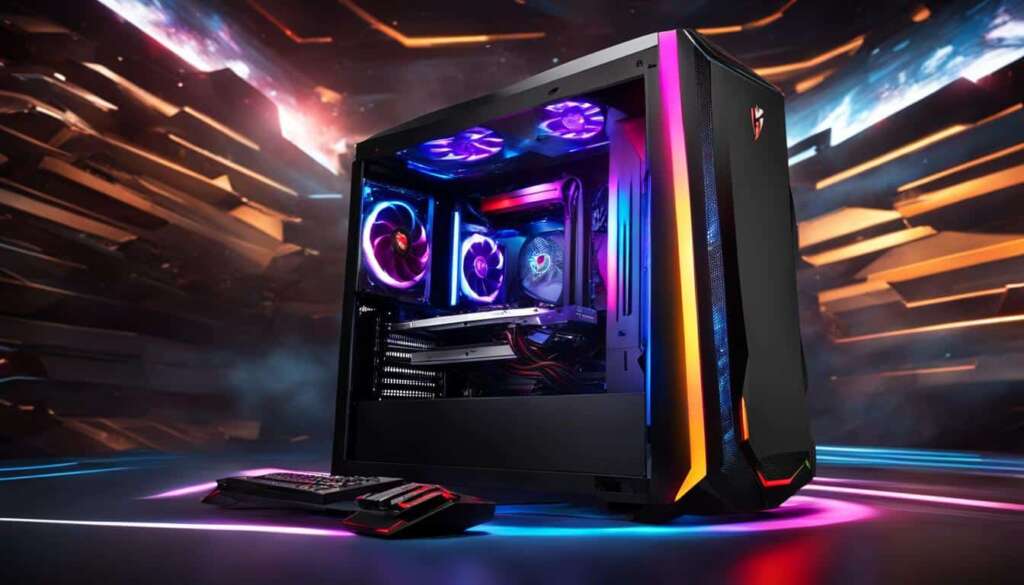Table of Contents
A personal computer, also known as a PC, is an essential tool in today’s world. Whether you need it for work, gaming, education, or other purposes, choosing the right personal computer is crucial. This comprehensive guide will help you make informed decisions about personal computer choices, covering everything from desktop computers to laptops, computer hardware to software, and computer accessories to repair options. Let’s dive in and explore all the factors to consider when selecting your ideal personal computer.
When it comes to personal computer options, the choice between a desktop computer and a laptop is an important one. Desktops offer more power and customization options, making them a popular choice for home offices. On the other hand, laptops provide the convenience of portability, allowing you to work or play on the go.
The operating system is another crucial factor to consider. Windows, macOS, Chrome OS, and Linux are the four major operating systems available, each with its own features and advantages. Depending on your needs and preferences, you can choose the one that suits you best.
Hardware specifications, such as the CPU, graphics card, RAM, and storage, determine the performance capabilities of your personal computer. It’s important to understand the significance of each component and choose the right specifications for your specific requirements.
No personal computer is complete without the right accessories. From mice and keyboards to external monitors and dongles, these accessories enhance the functionality of your computer and contribute to a better user experience.
Finally, having access to reliable repair and support options is essential. Research the availability of computer repair services in your area and consider purchasing from manufacturers known for their excellent support and warranty policies.
By considering all these factors and conducting thorough research, you can confidently make the right decision when choosing your personal computer. Stay tuned for the upcoming sections that will cover each aspect in more detail, helping you become a personal computer expert.
Desktop vs. Laptop: Making the Right Choice
When it comes to choosing a personal computer, the first decision you need to make is whether to go for a desktop or a laptop. Each option offers its own unique advantages and considerations to help you make the right choice for your needs.
Power and Customization
Desktop computers are the go-to choice for those seeking immense power and customization options. They excel in performance, making them ideal for resource-intensive tasks such as gaming, video editing, and graphic design. Additionally, desktops allow for easy upgrading of components, ensuring that your computer stays up to date with evolving technology.
Portability and Flexibility
On the other hand, laptops offer unmatched portability, allowing you to take your work or entertainment wherever you go. This makes them perfect for professionals who need to work on the move or students who require flexibility in their study spaces. With a laptop, you have the freedom to work in cafes, libraries, or even while traveling.
Considerations for a Larger Monitor and All-in-One Models
One important factor to consider when choosing between desktops and laptops is the need for a larger monitor. If you work with intricate designs, detailed spreadsheets, or require multiple windows open simultaneously, a desktop computer with a larger display might be the better option. However, it’s worth noting that modern laptops can also be connected to external monitors to provide a similar experience.
Additionally, if saving space is a priority for you, all-in-one desktop models combine the computer and monitor into a single sleek unit. These models offer a streamlined and clutter-free setup.
Mac vs PC: Platform Choice
Another consideration when choosing between desktop and laptop computers is the platform choice of Mac or PC. Mac computers, powered by macOS, are known for their sleek design, user-friendly interface, and seamless integration with other Apple devices. They are often favored by creative professionals, such as designers and writers.
On the other hand, PC computers, powered by Windows, provide a wider variety of options from various manufacturers. They offer compatibility with a vast range of software applications and are popular among gamers and business professionals.
Ultimately, the choice between a desktop and a laptop relies on your specific needs, preferences, and the tasks you’ll be performing on your personal computer. Consider factors such as power requirements, portability, monitor size, and platform choice to make an informed decision that best suits your computing needs.
| Comparison | Desktop | Laptop |
|---|---|---|
| Power | Offers more power per dollar spent | Offers portability for on-the-go use |
| Customization | Allows for easy upgrading of components | Less customizable compared to desktops |
| Monitor | Allows for larger display options | Can be connected to external monitors for larger workspace |
| All-in-One Models | Available, offering a streamlined setup | No all-in-one models |
| Platform | Windows, offering compatibility with various software applications | Mac, providing seamless integration with other Apple devices |
Choosing the Right Operating System
The operating system (OS) is a crucial factor to consider when selecting a personal computer. Windows, macOS, Chrome OS, and Linux are the four major operating systems available. Each OS has its own unique features and benefits, catering to different user preferences and needs.
Windows: Windows is a versatile and popular choice, offering compatibility with various software applications. It provides a user-friendly interface and supports a wide range of hardware devices. Windows is widely used in both personal and professional settings, making it a reliable option for most users.
macOS: macOS, developed by Apple, is known for its sleek design and seamless integration with other Apple devices. It offers a user-friendly interface and a wide range of built-in applications tailored for creative tasks such as photo and video editing. macOS is an excellent choice for users already invested in the Apple ecosystem.
Chrome OS: Chrome OS is a lightweight and budget-friendly option, primarily designed for web-based tasks. It powers Chromebooks, which have gained popularity in education settings. Chrome OS prioritizes simplicity, ease of use, and quick access to Google’s suite of productivity apps and the Chrome web browser.
Linux: Linux is an open-source operating system that provides customization options and a high level of control. It is favored by advanced users and developers who value flexibility and prefer a tailor-made computing experience. However, Linux may have compatibility limitations with certain software applications.

Choosing the right operating system depends on your specific requirements, preferences, and familiarity with different platforms. Consider the software applications you regularly use or plan to use, hardware compatibility, user interface preferences, and the ecosystem you are already invested in. By carefully evaluating these factors, you can select an operating system that best meets your needs and enhances your overall computing experience.
Exploring Hardware Specifications
The hardware specifications of a personal computer are crucial in determining its performance and capabilities. Various components such as the CPU, graphics card, RAM, storage, ports, webcam, and microphone contribute to the overall functionality and user experience.
CPU
The central processing unit (CPU) acts as the brain of the computer, executing instructions and performing calculations. It determines the processing power and speed of the system. When choosing a CPU, consider factors such as the number of cores, clock speed, and cache size to ensure optimal performance for tasks such as gaming, video editing, or running resource-intensive applications.
Graphics Card
The graphics card, also known as the GPU (Graphics Processing Unit), is responsible for rendering images, videos, and other multimedia content. A high-quality graphics card is essential for smooth-running graphics-intensive tasks such as gaming and video editing. When selecting a graphics card, consider factors such as memory capacity, clock speed, and shader units to ensure excellent visual quality and performance.
RAM
Random Access Memory (RAM) is the temporary storage space that the computer uses to store data that is actively being used. The amount of RAM affects the system’s ability to multitask and run multiple applications simultaneously. More RAM allows for smoother multitasking and a snappier overall computing experience. Consider the RAM capacity and speed when choosing a personal computer.
Storage
Storage options include hard disk drives (HDD) and solid-state drives (SSD). HDDs offer larger storage capacities at a lower cost per gigabyte, making them suitable for storing large files such as videos, photos, and games. On the other hand, SSDs provide faster data access speeds, resulting in faster boot times and application launch times. Depending on your needs, consider the balance between storage capacity and speed when selecting a personal computer.
Ports
The availability and type of ports on a personal computer are important considerations, especially when connecting peripherals and external devices. Common ports include USB ports, HDMI ports, audio jacks, and Ethernet ports. Ensure that the computer has an adequate number and variety of ports to accommodate your specific needs.
Webcam and Microphone
In an increasingly digital world, the quality of the webcam and microphone can greatly impact experiences such as video conferencing, streaming, and content creation. When choosing a personal computer, consider the resolution and image quality of the webcam, as well as the sensitivity and clarity of the microphone, to ensure clear and immersive communication.
Considering these hardware specifications will help you make an informed decision when selecting a personal computer that meets your specific needs and preferences.
| Specification | Description |
|---|---|
| CPU (Central Processing Unit) | The brain of the computer that determines processing power. |
| Graphics Card | Responsible for rendering images and videos. |
| RAM (Random Access Memory) | Temporary storage for actively used data. |
| Storage | Options include HDD (hard disk drives) and SSD (solid-state drives). |
| Ports | Connectivity options for peripherals and external devices. |
| Webcam and Microphone | Quality of video and audio input/output. |
Essential Computer Accessories
In addition to the main computer unit, there are several accessories that enhance the user experience. A mouse and keyboard are standard peripherals for desktop computers, while laptops usually have built-in versions. Consider the need for an external monitor for added screen space. Depending on the available ports, you may need a dongle to connect additional devices.
Other accessories to consider include speakers, headphones, printers, and external storage devices.
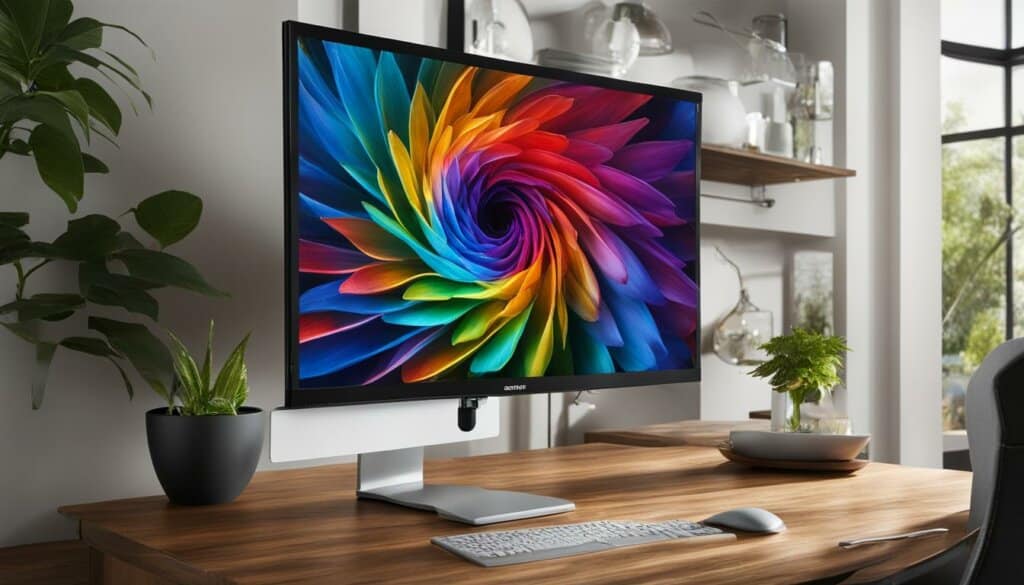
Repair and Support Options
When it comes to your personal computer, having access to reliable repair and support options is essential. Whether you encounter technical issues or require assistance, it’s important to know where to turn for help. Here are some key considerations to keep in mind:
- Research Local Computer Repair Services: Start by researching the availability of trustworthy computer repair services in your area. Look for providers with a track record of quality work and satisfied customers. Read reviews and ask for recommendations from friends or colleagues who have had positive experiences with computer repair professionals.
- Consider Manufacturer Support: Another option to explore is purchasing a personal computer from a manufacturer that offers reliable support. Manufacturers often have dedicated support centers where certified technicians can diagnose and resolve issues. Additionally, some manufacturers provide free telephone tech support or in-store assistance at authorized service centers.
- Review Warranty Terms and Conditions: Before making a purchase, carefully review the warranty terms and conditions to ensure that potential issues are covered. Pay attention to the duration of coverage and any limitations or exclusions. A comprehensive warranty can provide peace of mind knowing that repairs or replacements may be covered within a specified period.
Conclusion
Choosing the right personal computer (PC) is a crucial decision that depends on individual needs, preferences, and budget. Whether you require a PC for work, gaming, entertainment, or education, considering certain factors will guide you towards making an informed decision.
Firstly, evaluate the portability aspect. If you need a computer that you can take with you anywhere, a laptop would be the ideal choice. However, if you prioritize power and customization options, a desktop PC might be more suitable.
Secondly, consider the operating system that aligns with your needs. Windows, macOS, Chrome OS, and Linux are the main choices available.
Lastly, hardware specifications, accessories, and repair options should be carefully evaluated. Pay attention to the central processing unit (CPU), graphics card, RAM, and storage capabilities. Additionally, consider peripherals such as a mouse, keyboard, and external monitor, as well as the availability of repair services and warranty coverage.
By considering these factors and conducting thorough research, you can confidently make a decision that suits your needs and find the perfect PC for your requirements.
FAQ
What factors should I consider when choosing between a desktop and a laptop?
When making this decision, consider factors such as portability, the need for a larger monitor, the availability of all-in-one models, and the choice between Mac and PC platforms.
What are the major operating systems available for personal computers?
The major operating systems for personal computers are Windows, macOS, Chrome OS, and Linux.
Which operating system should I choose for my personal computer?
The choice of operating system depends on factors such as compatibility with software applications, user-friendly interface, budget-friendliness, and customization options.
What hardware specifications should I consider when choosing a personal computer?
When considering hardware specifications, it is essential to evaluate the CPU, graphics card, RAM, storage options (HDD or SSD), availability of ports, and the quality of the webcam and microphone.
What are some essential computer accessories?
Essential computer accessories include a mouse, keyboard, external monitor (if needed), and dongle (if required for connecting additional devices). Additional accessories like speakers, headphones, printers, and external storage devices may also be considered.
What repair and support options should I look for when purchasing a personal computer?
Research the availability of reliable computer repair services in your area or consider purchasing from manufacturers that offer reliable support. Check the warranty terms and conditions for coverage and consider manufacturers that provide tech support or in-store assistance.
How should I choose the right personal computer?
The decision of choosing the right personal computer depends on individual needs, preferences, and budget. Consider factors such as the purpose of the computer, portability, operating system, hardware specifications, accessories, and repair options.

